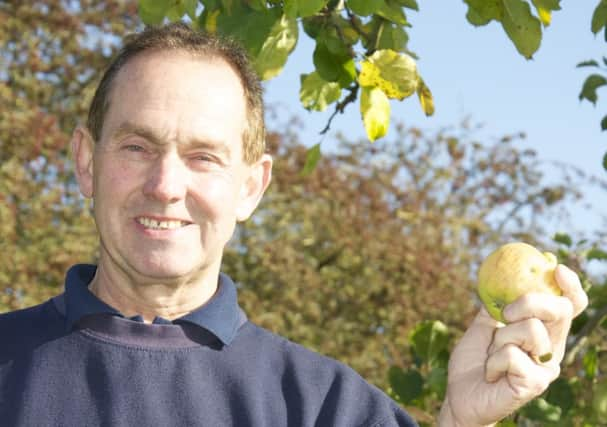North Yorkshire village’s apple tree project benefits all


The residents of this North Yorkshire village have been turning fruit into liquid gold for five years now. Through the Orchards of Husthwaite co-operative, volunteers have planted more than 1,000 apple trees, picked and pressed around 40 tonnes of fruit and produced 25,000 litres of juice and cider.
Its bestseller is Galtres Gold, a crisp, medium dry apple cider and other products include apples, pears, pear cider, fruit liquors and Yorkshire and heritage variety fruit trees.
Advertisement
Hide AdAdvertisement
Hide AdAll profits from sales go to support local good causes and so far the co-op has invested more than £20,000. Not bad for a village of just 420 people.
At a recent board meeting, trustees allocated its latest grants - to set up a new indoor bowling club, provide genealogy software for the historical society, a contribution to the church’s food bank and a another to help install a defibrillator in the village.
Previously, funding has gone to add an air source heat pump to the village hall, a new games and playground building, a village noticeboard and replacing the church door.
Trustee, Cameron Smith, said the aim is to improve the village in many ways. “There are three tiers of people in the village. The families who’ve been here for generations, established incomers and new incomers. We’re trying to fund projects that bring these groups together.”
Advertisement
Hide AdAdvertisement
Hide AdIt is also connecting the village with its past. For 300 years Husthwaite was known as North Yorkshire’s ‘orchard village’, with fruit production and jam manufacture providing income for local families.
Many of the village’s 100 or so houses have large smallholdings, or ‘garths’, behind them which traditionally included orchards. While many have retained their aging fruit trees, the changing nature of both agriculture and working life meant that, by the late 1960s, most of the village’s orchards had been grubbed up.
To bring revive this heritage, volunteers have planted 750 trees in gardens and garths, including 300 in Jan Janiurek’s and Jane Maloney’s garth. Mr Janiurek said the trees form part of a wildlife sanctuary, attracting deer and otters.
Barney Smith hosts around 70 trees at his ‘Hideaway’ campsite. “We get 150 people here every day in the summer and a lot of our customers like to camp among the trees. The blossom looked amazing in spring,” he said.
Advertisement
Hide AdAdvertisement
Hide AdThere are 12 apple trees behind the village pub and the local primary school has another 50.
Those who host the trees maintain them as they wish, Cameron Smith explained. “They can take all the fruit, but if they choose to give us the surplus that’s great. The hard bit is getting them off the trees and to the press, and selling the cider. It’s a lot of hard work.”
The project attracts helpers from across the country, he said. “We get a lot of people who come to learn how to make cider. They offer labour for knowledge. Sometimes they trade labour for fruit.”
The village’s cider mill makes up to 7,000 litres of cider a year. As well as a clean room, a fermentation room and a press, there is a small pasteuriser, which means the co-op can produce unlimited juice. “We have a potential turnover of £15,000-£20,000 a year,” said Cameron, who also works three days a week as orchard manager at nearby cider maker Ampleforth Abbey.
Advertisement
Hide AdAdvertisement
Hide AdMinus expenses including rent, bills and bottles, that leaves around £5,000 profit annually, which is used for community benefit.
This year around 1,000 litres of the new season cider will be made and sold to local shops, summer shows and at its stall at Hovingham Farmers’ Market on the first Saturday of every month.